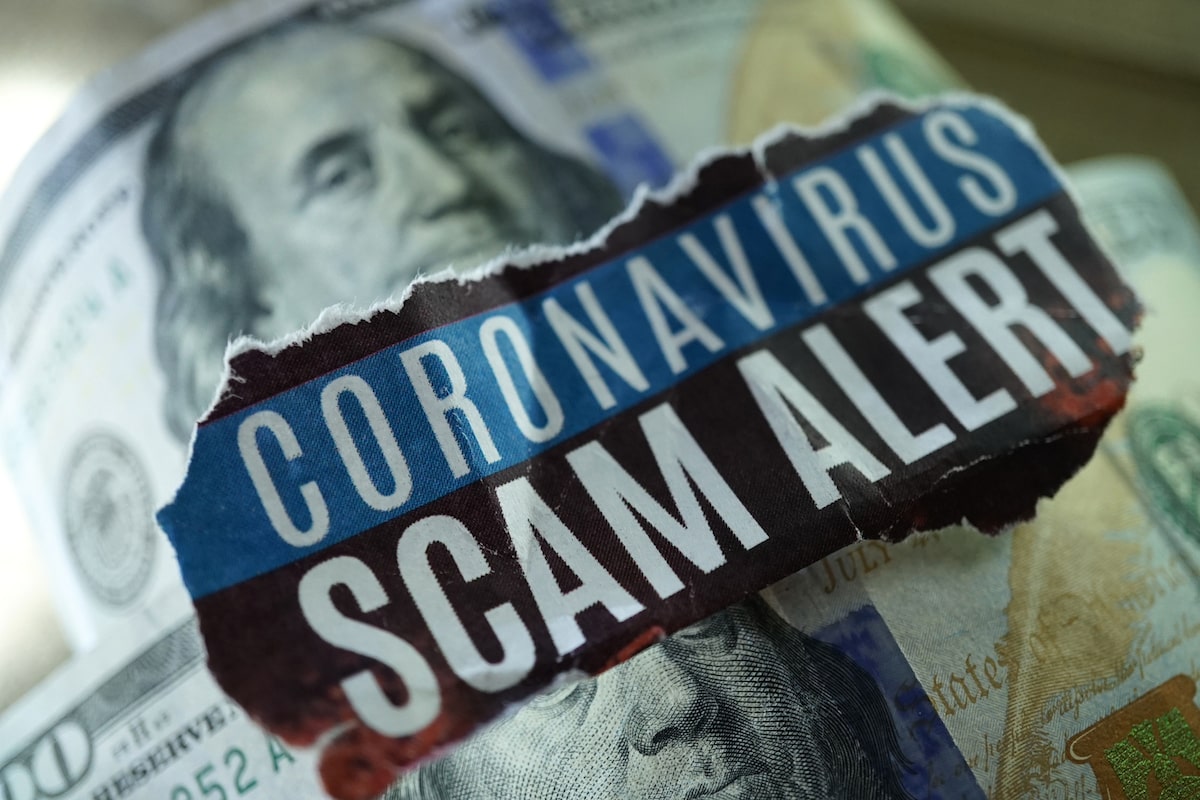You’re sitting at home, safe and sound, during the COVID-19 pandemic. Unless, of course, you’re checking your smartphone email or firing up your computer for some recreational browsing. Then “safe” can suddenly evaporate from your self-isolation.
The Federal Bureau of Investigation is warning this week of an increase in online extortion scams during the health crisis with so many more people at home and online. The scams vary, but the motive is always the same: to pressure you into sending scammers money. Often, the scammers send an email threatening to release sexually explicit photos or compromising videos to your contacts unless you pay.
How to Recognize an Online Scam
Here are some scam tactics, according to the FBI:
- The online extortion attempt comes as an email from an unknown party. Many times, it’s written in broken English with grammatical errors.
- The recipient’s personal information is noted in the email or letter to add a higher degree of intimidation to the scam. The recipient’s user name or password, for example, is provided at the beginning of the email.
- The recipient is accused of visiting adult websites, cheating on a spouse or being involved in other compromising situations.
- The email includes a statement like, “I had a serious spyware and adware infect your computer,” or “I have a recorded video of you” as an explanation of how the information was allegedly gathered.
- The email or letter threatens to send a video or other compromising information to family, friends, coworkers or social network contacts if a ransom is not paid.
- The email or letter provides a short window to pay, typically 48 hours.
- The recipient is instructed to pay the ransom in Bitcoin, a virtual currency that provides a high degree of anonymity.
How to Avoid a Scam
Your mission: Don’t send money (or click on a link to change password information for what appears to be a familiar site) when prompted by an unsolicited request..
- Do not open emails or attachments from unknown people.
- Monitor your bank account statements regularly, and your credit report at least once a year for any unusual activity.
- Do not communicate with unsolicited email senders.
- Do not store sensitive or embarrassing photos or information online or on your mobile devices.
- Use strong passwords and do not use the same password for multiple websites.
- Never provide personal information of any sort via email. Be aware that many emails requesting your personal information appear to be legitimate.
- Ensure security settings for social media accounts are activated and set at the highest level of protection.
- Verify the web address of legitimate websites and manually type the address into your browser.
If you think you’ve been a scam victim, call the FBI’s Connecticut Field Office in New Haven at 203.777.6311. You should also file a complaint at the FBI’s Internet Crime Complaint Center, the IC3, by clicking here.
Not feeling well? Call your healthcare provider for guidance and try to avoid going directly to an emergency department or urgent care center, as this could increase the chances of the disease spreading.
Need to see your doctor? New Patient? For more information about Hartford HealthCare virtual health visits, click here.
Click here to schedule a virtual visit with a Hartford HealthCare-GoHealth Urgent care doctor.
Stay with Hartford HealthCare for everything you need to know about the coronavirus threat. Click here for information updated daily.
Questions? Call our 24-hour hotline (860.972.8100 or, toll-free, 833.621.0600).
Get text alerts by texting 31996 with COVID19 in the message field.

